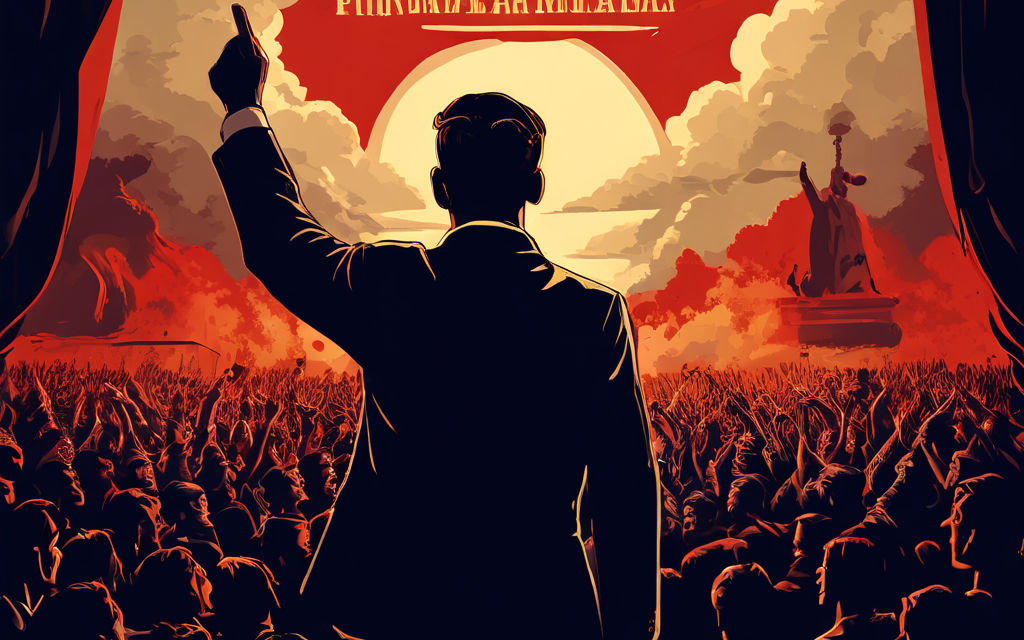By Ihsan Ullah
BS English, University of Swat
Public opinion and propaganda are two powerful forces that shape societies and influence individuals significantly. While they both involve disseminating information to persuade and sway people’s beliefs and attitudes, they operate differently and have distinct implications for democracy and the functioning of society.
Public opinion refers to a group of people’s collective beliefs, attitudes, and sentiments on a particular issue or topic. It is formed through various channels such as personal experiences, interactions with others, media exposure, and education. Public opinion can change in response to new information, events, and social dynamics.
On the other hand, propaganda is a deliberate and systematic effort to manipulate public opinion by spreading biased or misleading information. It often employs repetition, emotional appeals, and selective presentation of facts to shape perceptions and attitudes favouring a particular agenda or ideology. Propaganda can be disseminated through various media outlets, advertisements, political speeches, and social media platforms.
One of the key differences between public opinion and propaganda lies in their intent and transparency. Public opinion arises organically from the collective thoughts and experiences of individuals within a society, reflecting a diverse range of perspectives and viewpoints. While public opinion can be influenced by external factors such as media coverage and political discourse, it is ultimately shaped by citizens’ voluntary participation and engagement.
In contrast, propaganda is typically designed and disseminated by specific individuals or groups to manipulate public perception to serve their interests or agendas. Propagandists often seek to control the narrative surrounding a particular issue or event, presenting information to promote their objectives while downplaying or distorting opposing viewpoints. Unlike public opinion, which evolves through open dialogue and debate, propaganda relies on tactics of persuasion and manipulation to achieve its objectives.
Another distinction between public opinion and propaganda is their impact on democratic processes and civic engagement. Public opinion, when informed by diverse perspectives and open discourse, plays a vital role in democratic governance by providing policymakers with valuable insights into the preferences and priorities of the public. In a healthy democracy, elected officials are accountable to the electorate and must consider public opinion when making decisions on behalf of the people.
However, propaganda can undermine democratic principles by distorting the truth and manipulating public discourse for partisan or ideological purposes. When propaganda is used to suppress dissenting voices or promote false narratives, it can erode trust in institutions and undermine the democratic process. In extreme cases, propaganda can lead to the manipulation of elections, the suppression of minority rights, and the consolidation of power by authoritarian regimes.
Moreover, while public opinion is subject to scrutiny and debate, propaganda often operates in the shadows, disguising its true intentions behind a facade of legitimacy. Propagandists may exploit psychological biases and vulnerabilities to manipulate public opinion without regard for truth or ethical considerations. In contrast, public opinion, when formed through open and transparent dialogue, is more likely to reflect the diverse perspectives and values of a democratic society.
In conclusion, public opinion and propaganda are two distinct phenomena that influence societies and individuals’ attitudes. While public opinion arises organically from a society’s collective beliefs and experiences, propaganda is a deliberate effort to manipulate public perception for specific agendas or interests. Understanding the differences between public opinion and propaganda is essential for safeguarding democratic principles and promoting informed civic engagement. By fostering open dialogue, critical thinking, and media literacy, societies can mitigate the influence of propaganda and ensure that public opinion reflects diverse perspectives and democratic values.





